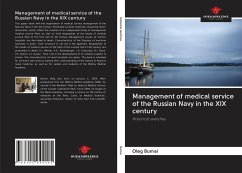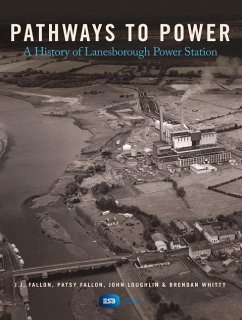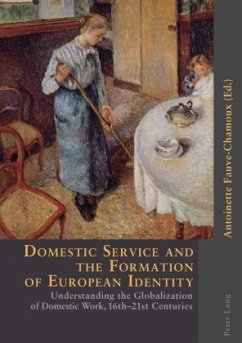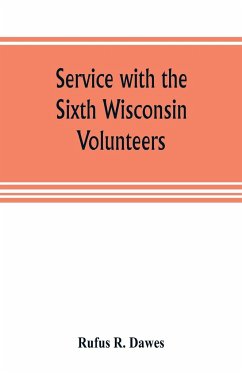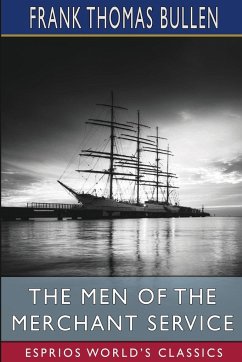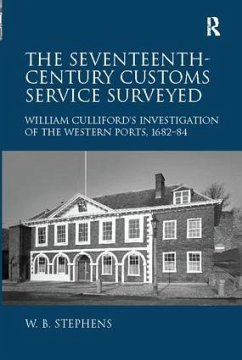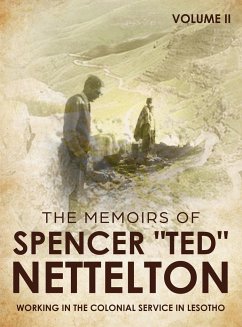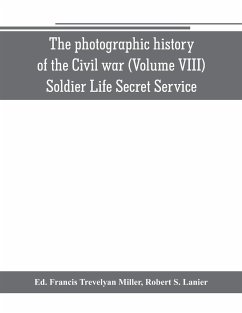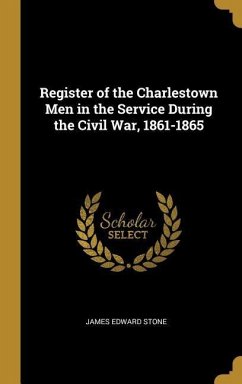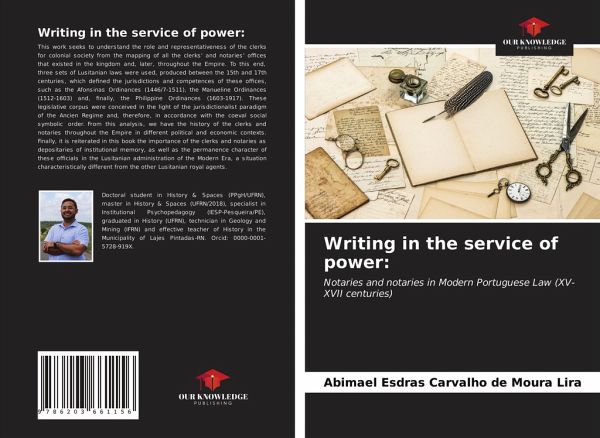
Writing in the service of power:
Notaries and notaries in Modern Portuguese Law (XV-XVII centuries)
Versandkostenfrei!
Versandfertig in 1-2 Wochen
36,99 €
inkl. MwSt.

PAYBACK Punkte
18 °P sammeln!
This work seeks to understand the role and representativeness of the clerks for colonial society from the mapping of all the clerks' and notaries' offices that existed in the kingdom and, later, throughout the Empire. To this end, three sets of Lusitanian laws were used, produced between the 15th and 17th centuries, which defined the jurisdictions and competences of these offices, such as the Afonsinas Ordinances (1446/7-1511), the Manueline Ordinances (1512-1603) and, finally, the Philippine Ordinances (1603-1917). These legislative corpus were conceived in the light of the jurisdictionalist ...
This work seeks to understand the role and representativeness of the clerks for colonial society from the mapping of all the clerks' and notaries' offices that existed in the kingdom and, later, throughout the Empire. To this end, three sets of Lusitanian laws were used, produced between the 15th and 17th centuries, which defined the jurisdictions and competences of these offices, such as the Afonsinas Ordinances (1446/7-1511), the Manueline Ordinances (1512-1603) and, finally, the Philippine Ordinances (1603-1917). These legislative corpus were conceived in the light of the jurisdictionalist paradigm of the Ancien Regime and, therefore, in accordance with the coeval social symbolic order. From this analysis, we have the history of the clerks and notaries throughout the Empire in different political and economic contexts. Finally, it is reiterated in this book the importance of the clerks and notaries as depositaries of institutional memory, as well as the permanence character of these officials in the Lusitanian administration of the Modern Era, a situation characteristically different from the other Lusitanian royal agents.



